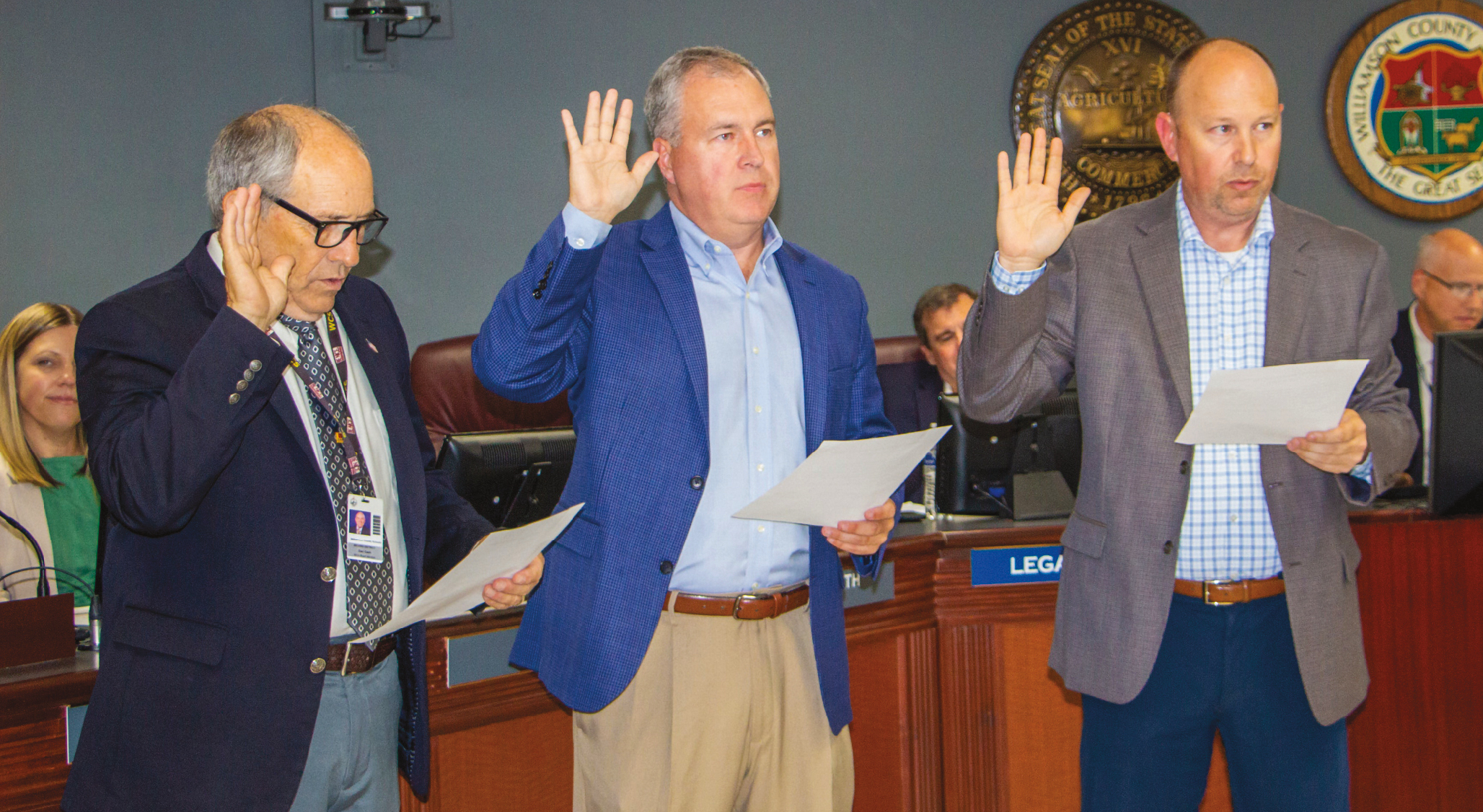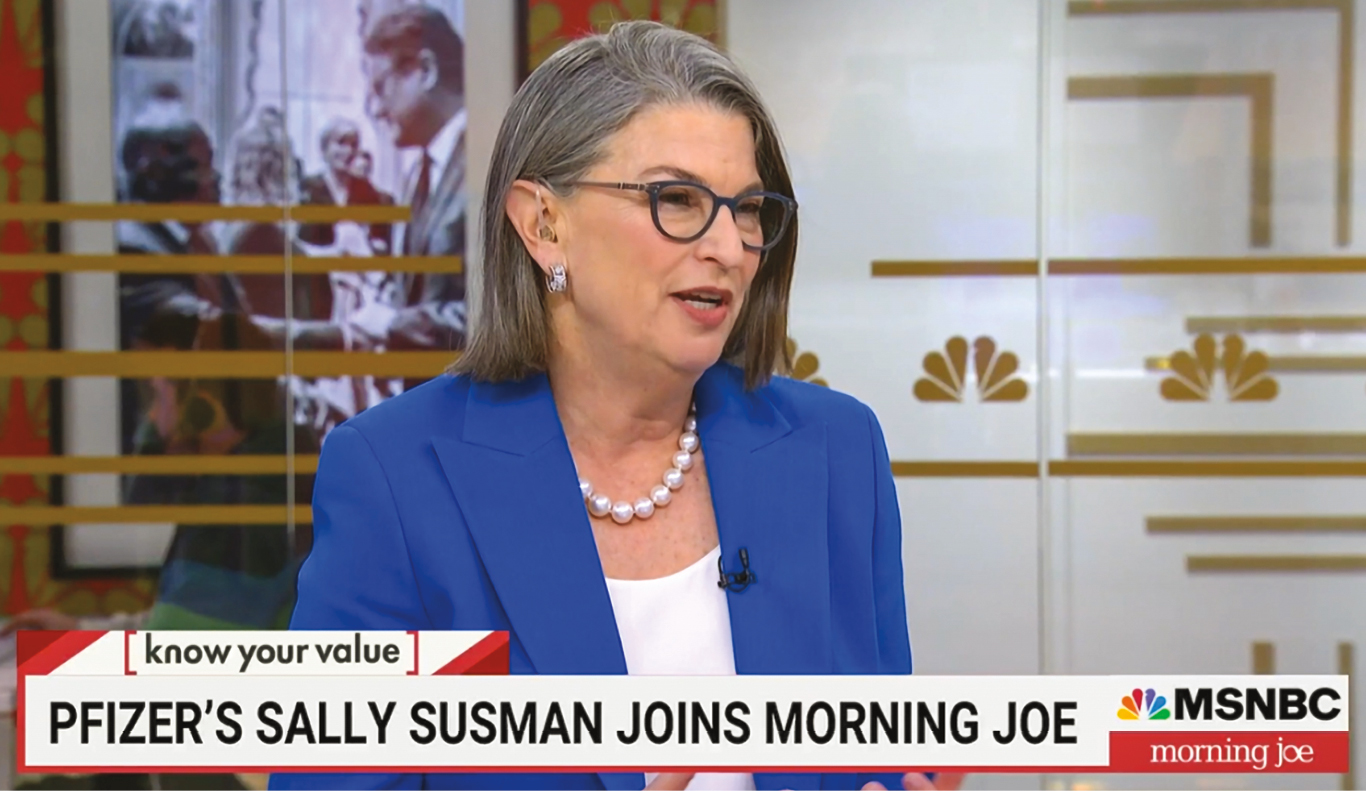Breaking Through for Positive Change
June 01, 2024
Practical advice from a corporate leader on delivering messages in a complicated world of noise and division

Educators, administrators and everyone engaged in our education system perform essential work in a contentious world. Communications is not a soft skill, but a rock-hard competency. However, it can be a challenge to master.
Everyone, especially those working in the public sector, needs to be an excellent communicator — to express themselves, be understood and connect with a variety of individuals from different backgrounds.
This statement never was truer than during the COVID-19 pandemic.
In response to vaccine mandates in several states, some of my Pfizer colleagues felt the heat personally, the animosity bombarding their daily lives. Josh Brown, then Pfizer’s vice president of U.S. state government affairs, came under personal attack.
Josh is plain-spoken and earnest, so one might think he would be an unlikely target. For years, I watched Josh be greeted warmly by governors on both sides of the political aisle. He’s not partisan, just a hardworking man focused on advocating for science and patients.
In September 2021, Josh was nominated to fill a vacancy created by a resignation on the Williamson County school board in Tennessee. A county commissioner encouraged Josh, a lifelong resident of the area, to seek the role. The next step was the vote by the full commission to give him the appointment. Everything seemed straightforward and on track for an easy approval.
News of Josh’s nomination set off outrage and negative social media posts. The concern was, because he worked for Pfizer, his agenda would be to promote mandatory vaccinations for all children in the school system. This is notwithstanding the fact that Josh had stated he would recuse himself from any votes (including those related to vaccines) that conflicted with his Pfizer work.
On Oct. 11, 2021, the county commission met to vote on Josh’s nomination. During the public comment period, 10 people spoke against him.
The arguments included cronyism — he was only being considered because people on the commission had known him a long time; that as a lobbyist for Pfizer, his job is to push vaccines and that’s what he would do on the school board; that his appointment was political payback because he helped many of the current members get elected (this was true of only a few of them). Some speakers used a tone that was mean-spirited.
All this happened in front of his wife, children and parents. It was an all-too-real example of how bitter and divisive politics, and the issues surrounding health care, had become.
Ultimately, the commission voted 16-3 to approve Josh’s nomination, and he’s serving with distinction on the school board.
Relying on Principles
For Josh, things have calmed down significantly. The state legislature acted to take some of these vaccine-related decisions out of the hands of the local school boards, which helped lower the temperature. But I credit him for managing his way through this quagmire by relying on several leadership principles that anyone can adopt and use to their advantage.
Josh was intentional about his reasons for stepping into the public square. He enjoys politics and policymaking, but the rationale for why he raised his hand for public office at that delicate moment when health care policy and return-to-school protocols were on the line was also personal. “I’ve got three kids in public school,” he said.
Josh paused and prepared before entering the public arena by talking to the commissioners who would decide his fate. As a longtime resident of the area, he asked them frankly, “How would you view my candidacy?” He didn’t want to put them in an awkward position or make their job harder or compromise their political position.
He thought about the pitch he would need during this heated election. Pitch, in a leadership and communications context, is the tenor, word choices and attitude we bring to any human encounter.
Josh told me that “anyone who knows me knows I don’t have many high highs or low lows. I’m pretty even-keeled. One of the things this situation didn’t need was someone who would come in and be really emotional, because all this right now is pure emotion,” he explained. “What we needed was someone who would come in and listen and be measured, so tone mattered a lot to me. I needed to say the right things and say them in the right way.”
Josh is not an average elected official. It was the reason he almost didn’t agree to the nomination. He generally stays out of the spotlight. When it became obvious that his nomination was generating a lot of attention, and he became the subject of news stories and social media posts, that started to bother him, and he questioned whether he really wanted this attention. “That’s not my style. Humility is the way I’m wired,” Josh said. In the end, Josh’s humility, like that of all breakthrough communicators, proved an essential asset.
Josh found a lighthearted moment to help manage the stress. “We hadn’t told the kids what we were going to do that night at the commission meeting. They knew I was looking to be on the school board, but they didn’t realize we were headed into a meeting about it.” Josh told me that he wanted them to be aware that it would be a large meeting of people holding signs, and some of them would be loud. Why? Because they didn’t want their dad to be on the school board. Why? “We went through the elementary version of the issue and that it’s OK to have different opinions,” he said.
It was a civics lesson offered during a 20-minute ride in his Honda Odyssey minivan. “You are going to see tonight why it’s great to live in America,” he told them. “People are going to go to the podium and say things they really believe and say things about me you probably won’t like. Hopefully, they will be polite and use nice words, but they might not. This is what’s great about living in America — we all get to say what we want.”
It made it easier for them when they got to a room filled with 300 people, many of whom said negative things about Josh. His children listened and smiled. The commissioners voted. Some other candidates received a few votes, but more supported Josh.
He was elected, and the kids got a taste of democracy in action.
Calls to Service

Unfortunately, these stories of division and anger are not rare. Beyond my Pfizer colleagues, other brave science advocates were targeted. Advocates like my friend Dr. Leana Wen. She is a public health warrior and author and frequently contributes to CNN and The Washington Post. I know her as gracious and inclusive. Yet she receives hate mail for being a pragmatic person and refusing to be anti-Big Pharma.
In fall 2021, a Texas man was charged in federal court for threatening Leana for her COVID-19 vaccination advocacy, ethnic heritage and gender. Leana has not been deterred. She continues to speak out with candor and clarity on important health-care topics, including vaccination.
I feel deep admiration and gratitude to the courageous leaders who communicated through the pandemic’s hateful noise. They became the bright contrast to the antagonism and negativity. People like Dr. Ashish Jha, who became a voice of reason across many media outlets during the COVID-19 crisis. The Indian-American physician and dean of the Brown University School of Public Health emerged as a go-to expert during the pandemic. I admired his tireless effort to educate the public. Or Kareem Abdul-Jabbar, the NBA legend who received his vaccine on television.
Or a woman named Dorothy Oliver, neither a celebrity nor a medical professional, but a strong-willed, tenacious woman who went door-to-door in her Panola, Ala., community to help her neighbors understand the public health emergency. She was responsible for getting 97 percent of the Panola residents vaccinated.
For her effort, she was recognized by USA Today in its Best of Humankind Awards, hosted by the Today show’s Jenna Bush Hager, and received a special message from the chief medical adviser to President Biden, Dr. Anthony Fauci, praising her “extraordinary accomplishment.”
What do these leaders have in common? Each rose to a challenge and became part of the effort to return the world to safety. They were the torchbearers.
The fights over masks and vaccine mandates revealed a deep divide that is neither ephemeral nor tied to the crisis of the day. This rift isn’t only about a virus and our response to it. The more troubling aspects of social and cultural change that the virus threw into high relief will take more than a particular policy vote or potent new antigen to heal.
Navigating Polarization
I wrote Breaking Through: Communicating to Open Minds, Move Hearts and Change the World to offer a practical guide to those seeking to make positive change and navigate the rough waters of our deeply polarized society.
We must be intentional and prioritize the work of bridge building. It will take courage and candor at a time when our instinct may be to run and hide. Curiosity about one another as humans with different perspectives and creativity in how we connect will be essential. Feelings of gratitude will have to supersede those of anger and suspicion.
Knowing when to be grateful and how to express it was reinforced by my boss at The Estée Lauder Companies, Leonard Lauder. I learned that being gracious and kind is an excellent communications tool. Showing generosity to rude people undermines their negativity, disarms them and often can turn their mood or demeanor around. Showing appreciation and recognition to those who deserve it works to engender enthusiasm, hard work and loyalty.
In our complicated world, we should take time to pause and prepare for how we want to lead. Humility will be a surprising and effective response to aggression. Humor can lift the mood and lighten the tension to allow for meaningful change. Seeking harmony amid discord is always a worthy pursuit.
A Pleasing Arrangement
We may never all agree, but we must learn to disagree more agreeably and to listen to one another for understanding rather than to prepare a rebuttal. We must remain open to the possibility that maybe, just maybe, the other person is right, and we are wrong.
“Harmony is the pleasing arrangement of different tones, voices or instruments, not the combination of identical sounds,” wrote Adam Grant, one of the world’s most influential management thinkers, on his LinkedIn page.
I share his goal for harmony. This mindset is essential for anyone hoping to succeed in the world today, and doubly critical for those in the sacred trust of educating future generations.
Sally Susman is executive vice president and chief corporate affairs officer at Pfizer and author of Breaking Through: Communicating to Open Minds, Move Hearts, and Change the World.
Advertisement
Advertisement
Advertisement
Advertisement


